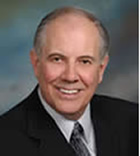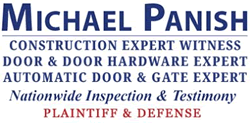When choosing an expert witness, most people will agree it is vitally important to select the right one from the outset. As a previous Corporate Risk Manager for a national self-insured elevator manufacturer and service provider, I learned rather quickly which credentials were absolutely necessary to achieve the level of skill and credibility required to successfully evaluate the various issues of any given case.
First and foremost, an elevator/escalator expert witness must have hands-on field experience installing, adjusting, maintaining, repairing and trouble-shooting a wide range of vertical transportation equipment. An added bonus would be if the expert also had experience in supervising and assisting the work of other field technicians, particularly in the area of trouble-shooting difficult field problems.
Second, a thorough and complete understanding of the ASME A17.1 Safety Code for Elevators and Escalators, evidenced by QEI (Qualified Elevator Inspector) certification from the American Society of Mechanical Engineers, is essential. Complete knowledge of a multitude of other safety codes and regulations, applicable to vertical transportation, is also required.
Third, a long history of specialization in the field of elevator and escalator accident investigation is a significant benefit due to the tremendous amount and value of technical knowledge gained through the investigative process, which is not otherwise available through any other means.
Due to the nature of litigation arising from elevator and escalator accidents, advanced degrees are not necessary for an experienced elevator and escalator expert to provide an accurate technical analysis of most all situations. Formal education is important, however, especially the knowledge and experience required to become a licensed elevator technician and obtain QEI certification.
The ideal elevator expert witness will be proficient in all three areas - hands-on experience, knowledge of codes and regulations, and experience in investigating elevator accidents.
Ronald E. Creak is an independent consultant, specializing in elevator accident investigation, claims resolution and expert witness services. He has been involved with more than 3000 cases. Mr. Creak is a NAESA Certified ASME QEI Elevator Safety Inspector. His 40+-year career spans virtually all aspects of the elevator and escalator industry.
©Copyright - All Rights Reserved
DO NOT REPRODUCE WITHOUT WRITTEN PERMISSION BY AUTHOR.









